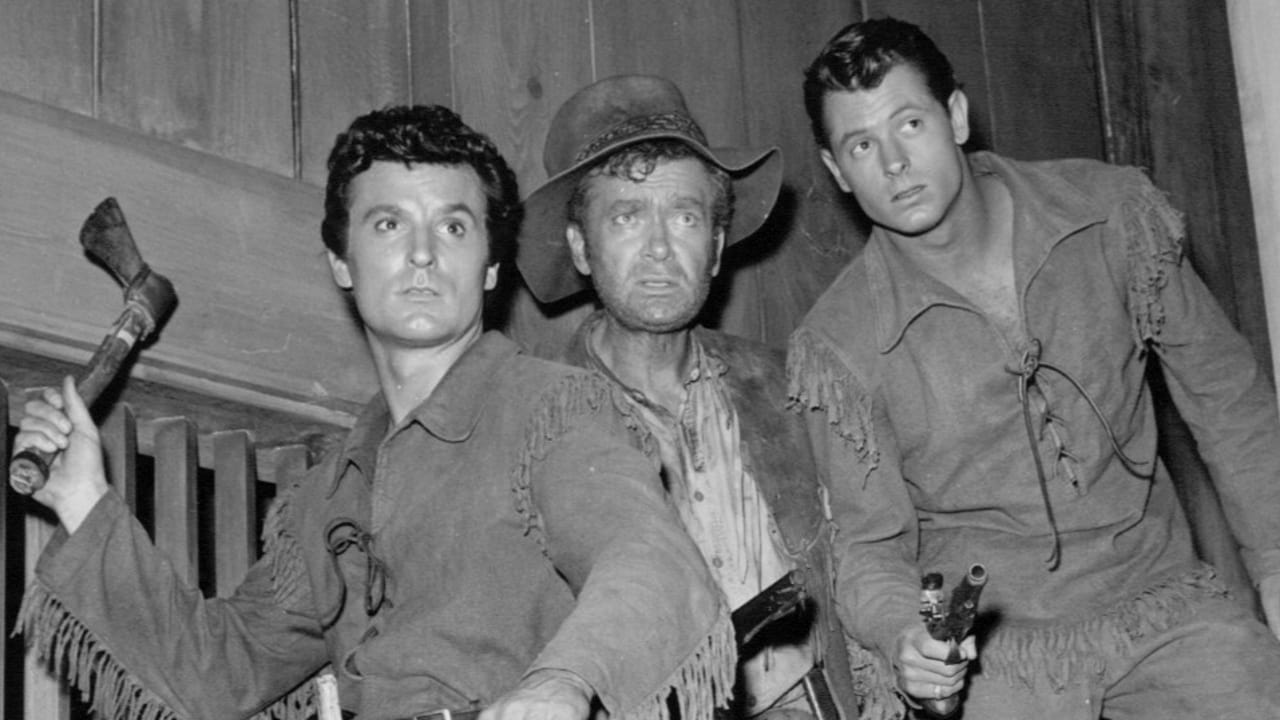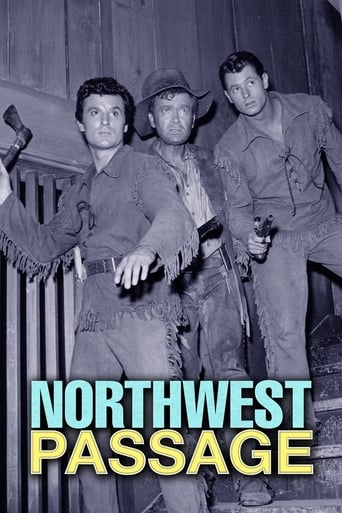



Instant Favorite.
This is a tender, generous movie that likes its characters and presents them as real people, full of flaws and strengths.
View MoreInstead, you get a movie that's enjoyable enough, but leaves you feeling like it could have been much, much more.
View MoreThis is one of the few movies I've ever seen where the whole audience broke into spontaneous, loud applause a third of the way in.
View MoreMGM which had produced and had a great success with the big screen adaption of the Kenneth Roberts novel Northwest Passage decided it would make a perfect setting for a small screen series. Although the episodes were of good quality, there was no interest apparently in a series set during the French and Indian War which was what the Seven Years War was called in North America.Keith Larsen starred as Major Robert Rogers founder of Rogers' Rangers and he was supported by Don Burnett as the college educated Langdon Towne, portrait painter and mapmaker and Buddy Ebsen as Hunk Marriner. Ebsen certainly was no stranger to backwoodsman's buckskins having co-starred with Fess Parker in Walt Disney's Davy Crockett.Robert Rogers is credited by many historical sources as being the originator of guerrilla warfare with his Rangers who wore green buckskins the better to blend in with the forest instead of regular British army uniforms. They could live off the land and move silently as an Indian through the woods and kill just as silently. Some of the scenes in this show could be quite brutal and definitely not for the pre-teen kids. After the massacre of General Braddock's forces by the Indian allies of the French on their way to relieve Fort Pitt, Rogers' case was made with the British command.Ironically enough Rogers offered to put together another set of Rangers among the Loyalists to the crown during the American Revolution. His status as American hero got taken down quite a bit after that and he died in relative obscurity.I wish the show had gained more of a following it was pretty good, but if it had Buddy Ebsen would not have been available to play Jed Clampett
View More"Twenty years after fighting the French in the French and Indian War", is stated above in another comment, as when someone returned to fight for the British in the Revolutionary War.Considering that the French and Indian War was in 1763, twenty years after that was 1783, which was the year that the Treaty of Paris was signed between Great Britain and the United States, which fully- recognized the independence of the United States! The Revolutionary War was long over with by then, ever since Cornwallis had surrendered to George Washington and his army at Yorktown in October 1781.Hence, that "twenty years" is way off. Fifteen years would give 1778, which was in the heart of the Revolutionary War.
View More"Northwest Passage's producers and writers drew their characters from the strongly-developed fictional personages of Kenneth Roberts' novel of the same name, set in US Revolutionary War times. Robert Rogers, here a fictionalized frontiersman and military man, was a real person, played in the film of this name by Spencer Tracy. The other were invented. This one-season 1958-59 program was, by my lights as writer, actor and director, the best one-half-hour program made for television in the twentieth century; it is indisputably the best-written and best-produced of all such series. The leading parts were played by Keith Larsen as Rogers, Buddy Ebsen as Hunk Marriner, Don Burnett as Langdon Towne and Philip Tonge as Gen. Amherst. The production qualities were, I suggest, far above average in every respect. The producer was "Star Trek" impresario Robert Justman; original music was composed by Raoul Kraushaar. The series' art direction was provided by William A. Horning and Merrill Pye with period set decorations by veterans F. Keogh Gleason, Henry Grace and Jack Mills. The directors who worked on this series included Otto Lang, George Waggener, Jacques Tourneur and Alan Crosland, Jr. Writers for the shows included Gerald Drayson Adams, Sloan Nibley and more. Many fine actors such as Lisa Gaye, Luis Van Rooten, Charles Horvath, Larry Chance and other contributed to the excellence of the production. The list included John Russell, Karen Steele, Claire Kelly, Peter Whitney, Carole Mathews, Lisa Montell, Paul Picerni, Marcia Henderson, Lee Van Cleef, Gene Nelson, De Forest Kelley, Murvyn Vye, Yvette Vickers, Morris Ankrum, Ben Wright, Patricia Donahue, Jay Novello, Joe Maross, Douglas Kennedy, Dean Harens, Payl Cavanagh, Carol Ohmart, Pernell Roberts, Richard Ney, Bruce Gordon, Sandy Kenyon, Angie Dickinson, Irene Tedrow, Emile Meyer, William Boyett, Alan Hale Jr., Harry Lauter and Denny Miller. I cannot recommend its strong feature-film-quality values too highly.
View MoreThere was such an appetite for TV westerns in the late 1950s that MGM figured it could sell this series even though it's set during the French & Indian War when the frontier was Pittsburgh! Most of its plots, however, could easily be interchanged with those on more traditional westerns. On 10-19-58, for instance, an episode ran titled "Break Out" in which series star Keith Larsen falls into the hands of the Bad Guys who force him to work on a road-gang. This same plot played across the whole "western" spectrum, perhaps because it allowed the lead ctor -- usually a muscular "hunk" -- to appear bare-chested and sweaty and maybe even suffer a bit of bondage and punishment. In "Break Out," Larsen is tied to a post and given a sound whipping. (Despite such sado-masochism, these old TV westerns are often re-run on "Family" channels!)
View More